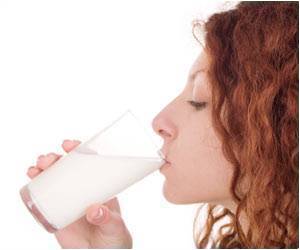Higher maternal intake of cheese and dietary calcium during pregnancy is associated with reduced risk of childhood dental caries, according to a Japanese study published in the Nutrition Journal.
Tooth decay or dental caries is the most common chronic disease among children globally. Although it may not be a fatal disorder, tooth decay can negatively affect the child's quality of life. Many factors may cause dental caries – cariogenic bacteria, fluoride exposure, dietary habits, and oral hygiene practices are some of them.Since tooth formation and mineralization starts in the 13th week of gestation, maternal nutrition status also plays an important role in tooth development. Previous studies have shown that high intake of calcium supplements can reduce the risk of dental caries in the child even at 12 years of age. However, not much information is available on the role of dietary calcium intake during pregnancy and the child’s dental health.
So, Keiko Tanaka and her colleagues from Japan took up a study to find out the link between intake of dairy products and calcium during pregnancy and the risk of dental caries in the child.
Three hundred and fifteen Japanese mother–child pairs were included in the study. Data on maternal nutrition and dietary habits was assessed through a diet history questionnaire. Children were classified as having dental caries based on the number of decayed or filled primary teeth between 41 and 50 months of age.
The study revealed interesting results -
• Higher maternal intake of cheese during pregnancy decreased the risk of tooth decay in children.
• There was no evident association between maternal milk intake and risk of tooth decay in the child.
The researchers ascribed the positive association between maternal intake of dairy products and childhood dental caries to calcium intake or to ‘unmeasured constituents in relation to calcium’. According to them ‘Higher maternal calcium intake during pregnancy might influence fetal tooth mineralization, causing tooth enamel to be more acid-resistant’ and consequently resistant to tooth decay.
They further pointed to the studies that showed that ‘teeth with high lead levels are generally more susceptible to dental caries’ and that ‘calcium supplementation during pregnancy was associated with reduced blood lead levels’. They hypothesized that the lead levels in the pregnant mother might be an important factor that affected the mineralization of teeth in the child.
The researchers suggested further studies to clarify ‘the mechanisms underlying the possible inverse associations between maternal intake of dairy products and calcium and the risk of dental caries in children’.
Reference: Tanaka K, Miyake Y, Sasaki S, Hirota Y. Dairy products and calcium intake during pregnancy and dental caries in children. Nutr J. 2012 May 17;11(1):33.
Source-Medindia














